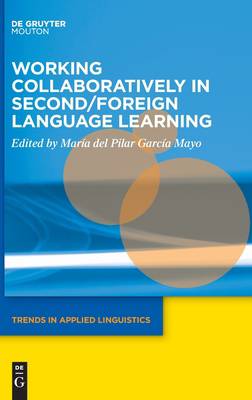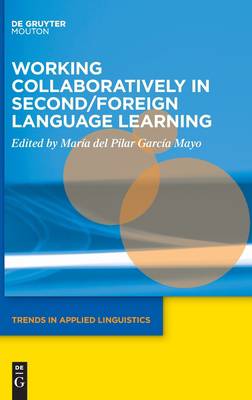
- Afhalen na 1 uur in een winkel met voorraad
- Gratis thuislevering in België vanaf € 30
- Ruim aanbod met 7 miljoen producten
- Afhalen na 1 uur in een winkel met voorraad
- Gratis thuislevering in België vanaf € 30
- Ruim aanbod met 7 miljoen producten
Working Collaboratively in Second/Foreign Language Learning
Omschrijving
Since the introduction of communicative language teaching, collaborative learning has played an important role in the second language (L2) classroom. Drawing from sociocultural theory, which states that human cognitive development is a socially situated activity mediated by language, studies in L2 pedagogy advocate the use of tasks that require learners to work together. Collaborative dialogue encourages language learning, and research shows that the solutions reached by students in this process are more often correct with a lasting influence on their language comprehension.
This volume includes ten chapters that illustrate the benefits of collaborative dialogue in second foreign language classrooms. The volume considers key issues dealing with collaborative tasks and implications for language teaching.
Specificaties
Betrokkenen
- Uitgeverij:
Inhoud
- Aantal bladzijden:
- 237
- Taal:
- Engels
- Reeks:
- Reeksnummer:
- nr. 30
Eigenschappen
- Productcode (EAN):
- 9781501517310
- Verschijningsdatum:
- 18/01/2021
- Uitvoering:
- Hardcover
- Formaat:
- Genaaid
- Afmetingen:
- 156 mm x 234 mm
- Gewicht:
- 580 g

Alleen bij Standaard Boekhandel
Beoordelingen
We publiceren alleen reviews die voldoen aan de voorwaarden voor reviews. Bekijk onze voorwaarden voor reviews.








